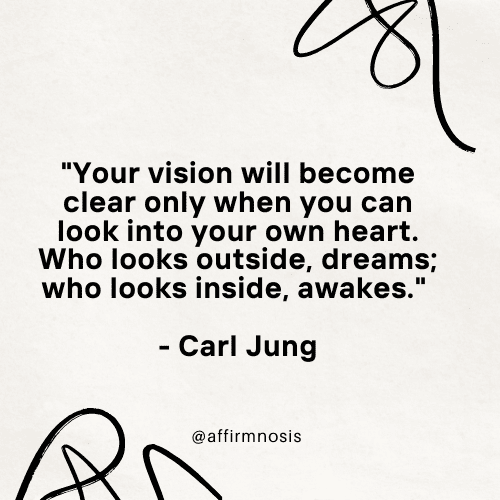Reflective meditation is a form of mindfulness practice that involves intentionally focusing one’s attention on contemplative introspection. It is the process of reflecting on one’s experiences, thoughts, and emotions in order to gain greater insight into the nature of oneself and one’s relationships with others.
Reflective meditation can be practiced individually or in group settings and can be done at any time during the day.
Definition of Reflective Meditation
Reflective meditation is a form of self-reflection that involves focusing one’s awareness on inner experiences. It is a mental exercise that allows us to examine our thoughts and feelings without judgment or criticism.
Through reflective meditation, we learn to observe our inner world more objectively, gaining deeper insights into our emotions and behaviors. Reflective meditation requires us to tap into our intuition, paying attention to the subtleties of our thoughts and feelings.
By doing so, we become more aware of patterns in our behavior that may be counterproductive or problematic. This type of introspection helps us identify areas where we need growth or change.
Importance of Reflective Meditation in Personal Growth and Development
The practice of reflective meditation has been shown to have numerous benefits for personal growth and development. By cultivating self-awareness through reflection, individuals are better able to understand their own motivations, needs, and desires. This increased understanding promotes healthier relationships with others as well as with oneself.
Moreover, reflective meditation helps individuals manage stress more effectively by teaching them how to control their reactions to it. As individuals become more attuned to their internal processes through reflection exercises like mindfulness practices such as body scan or visualization meditations they learn how their mind interacts with different situations they face every day.
Reflective mediation helps individuals develop an attitude of gratitude by promoting appreciation for life’s small pleasures while also providing perspective on difficult situations encountered throughout life’s journey. This leads to increased resilience, happiness, and overall well-being.
Benefits of Reflective Meditation
Reflective meditation is a type of mindfulness practice that encourages self-reflection and introspection. When practiced regularly, it can provide numerous benefits for personal growth and development. Here are some of the main benefits of reflective meditation:
Improved Self-Awareness and Self-Understanding
One of the most significant benefits of reflective meditation is improved self-awareness and self-understanding. This type of meditation involves focusing on your thoughts, emotions, and physical sensations without judgment or reaction. This practice allows you to observe your thoughts objectively, giving you a better understanding of your inner world.
Reflective meditation can help you identify patterns in your thinking, beliefs, and behaviors that may be holding you back from achieving your goals or living the life you desire. By becoming more aware of these patterns, you can make conscious choices to change them and create new habits that align with your values.
Increased Emotional Intelligence
Another benefit of reflective meditation is increased emotional intelligence. Reflective meditation helps develop emotional intelligence by promoting awareness and acceptance of difficult emotions such as sadness, fear, anger, or frustration without reacting to them impulsively.
Through this practice we learn to recognize our own emotions more clearly which enables us to empathize with others as well as ourselves much better. This ability leads to enhanced interpersonal communication skills due to an increased capacity for understanding people’s emotions during conversations.
Enhanced Problem-Solving Skills
Reflective meditation also helps enhance problem-solving skills by allowing us to approach problems from a different perspective than usual. When we are deeply involved in our thoughts or emotions during a challenging situation it becomes difficult for us to see all potential solutions; reflecting on such situations creates space for new perspectives which provides room for creative solutions. By taking time out through reflective mediation one becomes more focused which allows different parts of the brain to work in tandem and come up with more innovative solutions than might have been possible before.
Reduced Stress and Anxiety Levels
Reflective meditation can also help reduce stress and anxiety levels. When we are stressed or anxious, our minds tend to race with thoughts that can be overwhelming. This racing of the mind often leads to feelings of restlessness, agitation, or even panic.
Reflective meditation gives us an opportunity to slow down and observe these thoughts without judgment, which helps calm the mind. Regular practice trains the mind to stay focused on the present moment instead of getting lost in worries about past experiences or future events that may never happen.
This practice enables individuals to deal with stressful situations better as they are more likely to remain level-headed during tough times. Reflective meditation provides numerous benefits for personal growth and development.
It improves self-awareness and self-understanding, increases emotional intelligence, enhances problem-solving skills by promoting new perspectives while reducing stress and anxiety levels. With regular practice of reflective meditation one can expect significant improvements in these areas over time leading towards a happier life overall.
Techniques for Reflective Meditation
Mindfulness Meditation: Cultivating Present Moment Awareness
Mindfulness meditation is a popular technique for reflective meditation. It involves paying attention to the present moment without judgment.
In this technique, you focus on your breath and observe any thoughts or sensations that arise while staying grounded in the present. You may find yourself getting distracted by your thoughts, but the practice is to gently bring your attention back to your breath.
Mindfulness meditation helps develop self-awareness by training our minds to be present and non-judgmental. To start practicing mindfulness meditation, find a quiet place to sit or lie down where you won’t be disturbed.
Set a timer for 5-10 minutes or as long as you feel comfortable with, close your eyes, and focus on your breath. Start by taking several deep breaths and then return to normal breathing pattern, focusing on the sensation of air moving in and out of your nostrils.
Body Scan Meditation: Scanning Inner Sensations
Body scan meditation involves observing sensations throughout the body from head to toe while lying down or sitting in a comfortable position. This technique can help increase awareness of physical sensations and reduce stress levels. To start practicing body scan meditation, lie down on a yoga mat or bed with arms by sides palms facing up and legs slightly apart with toes pointing outwards.
Close your eyes inhale deeply through your nose and exhale slowly through mouth. Start scanning from head towards toe, notice any tension in each body part starting from top down until you reach feet.
Loving-Kindness Meditation: Cultivating Compassion Towards Self And Others
Loving-kindness meditation is also known as Metta Bhavana which means “cultivation of loving-kindness”. This technique involves sending love and well-wishes towards oneself first followed by loved ones, acquaintances, and eventually all beings.
Practicing loving-kindness meditation can help develop compassion, reduce feelings of anger or resentment towards oneself and others. To start practicing loving-kindness meditation, find a quiet place to sit or lie down where you won’t be disturbed.
Set a timer for 5-10 minutes or as long as you feel comfortable with, close your eyes and focus on your breath. Imagine yourself filled with love and compassion then extend that feeling of love to the people in your life starting from the easiest ones such as family members or pets moving on to more challenging ones such as coworkers/strangers.
Visualization Meditation: Creating Mental Images
Visualization meditation involves creating mental images of a peaceful place (real or imaginary). This technique can help improve concentration and reduce stress levels by focusing on a peaceful image rather than negative thoughts.
To start practicing visualization meditation, find a quiet place to sit or lie down where you won’t be disturbed. Set a timer for 5-10 minutes or as long as you feel comfortable with, close your eyes and focus on your breath.
Create an image of a peaceful place in your mind’s eye – it can be anywhere from mountainsides to beaches – something that brings you peace. Focus on the details – smell the fresh mountain air; hear the sound of waves crashing onto shore; feel warmth from sun rays hitting skin etc.

Steps to Practice Reflective Meditation
Reflective meditation is a technique that can be practiced by anyone at any time, and it requires no special equipment or training. However, there are a few steps that you can follow to ensure you get the most out of your practice.
Find a quiet and comfortable place to sit or lie down
The first step in practicing reflective meditation is to find a quiet and comfortable place where you won’t be disturbed. This could be a room in your home, a peaceful spot in nature, or even your workplace during lunch break. Make sure the environment around you is conducive to relaxation – dim the lights, turn off any distracting noises, and make yourself as comfortable as possible.
Set an intention for your reflection
Once you have found your spot and set up the environment around you, take a moment to set an intention for your reflection. This means asking yourself why you are practicing reflective meditation – what do you want to achieve through this practice? Your intention could be anything from increasing self-awareness to finding inner peace or recognizing patterns of unhelpful thinking.
Focus on your breath and allow thoughts to come and go without judgment
With your intention set, it’s time to begin your practice. Start by focusing on your breath – observe each inhale and exhale without trying to control it.
Allow thoughts to come into your mind without judging them or pushing them away. Simply observe them as they arise, acknowledge their presence, then let them go again.
Observe your thoughts, emotions, and physical sensations without reacting
As you continue with the practice of observing thoughts without judgment, also bring awareness to emotions and physical sensations that arise in the body. Notice how certain thoughts may trigger certain emotions or sensations in different parts of the body. Observe these with curiosity and openness, rather than trying to suppress or change them.
Ask yourself questions that promote self-reflection
As you continue with the practice, begin to ask yourself questions that promote self-reflection. These could be questions like “What am I grateful for?” or “What can I learn from this experience?”.
Allow these questions to sit in your mind for a moment without rushing to find an answer. The goal is not necessarily to find an answer, but rather to allow these questions to provoke deeper thinking and introspection.
End the practice with gratitude for the insights gained
As you come towards the end of your reflective meditation practice, take a moment to reflect on any insights or realizations that have arisen during your session. Express gratitude for these insights and for taking time out of your day to engage in self-reflection.
This will help foster a positive attitude towards yourself and your practice and encourage continued growth. By following these steps, you can establish a highly effective reflective meditation practice that will help you cultivate greater self-awareness and inner peace over time.
Tips for Successful Reflective Meditation Practice
Reflective meditation is a powerful tool for personal growth and development but it does require practice to master. Here are some tips to help you get started on your journey:
Start with Short Sessions and Gradually Increase the Duration as You Become More Comfortable
If you’ve never practiced reflective meditation before, it’s best to start with short sessions, such as 5-10 minutes, and gradually increase the duration as you become more comfortable. Reflective meditation requires focus and concentration, which can be challenging for beginners, so starting small will help you build the necessary skills more effectively. As you become more comfortable with reflective meditation, you can gradually increase the duration of your sessions to 20-30 minutes or longer if desired.
However, it’s important not to push yourself too hard too soon or become discouraged if progress seems slow. Reflective meditation is a practice that requires patience and persistence over time.
Use Guided Meditations or Apps If You Need Help Getting Started
If you’re new to reflective meditation or struggle with maintaining focus during your practice, using guided meditations or apps can be helpful. Guided meditations provide step-by-step instructions for how to practice reflective meditation effectively while apps offer a variety of tools and resources to support your practice.
There are many guided meditations available online or through apps like Headspace or Calm that provide guidance on breathing techniques, visualization exercises, body scans and other helpful techniques that can enhance your reflective meditation experience. These tools can be especially useful if you’re struggling with stress, anxiety or other emotional challenges that may make it difficult to focus on your thoughts during reflection.
Be Patient with Yourself As It Takes Time To Develop A Consistent Practice
One of the biggest challenges of reflective meditation is developing a consistent practice. It’s normal to experience setbacks, distractions or feelings of frustration when trying to establish a new habit. It’s important to remember that developing a consistent practice takes time and effort.
You may need several weeks or even months before you begin to see real progress in your reflective meditation practice. The key is to be patient with yourself and focus on building positive habits that support your overall well-being.
Avoid Distractions by Turning off Your Phone or Finding a Quiet Space
Distractions are one of the biggest obstacles to effective reflective meditation. It’s difficult to focus on your thoughts if you’re constantly interrupted by text messages, emails or other notifications from your phone or social media accounts.
One way to avoid distractions during reflective meditation is by turning off your phone, logging out of social media accounts and finding a quiet space where you can be alone with your thoughts. This will allow you to focus more fully on the present moment and engage more deeply with your reflections.
Reflective meditation is an effective tool for personal growth and development that requires patience, persistence and consistent effort over time. By following these tips for successful practice, you can enhance your ability to reflect on yourself, gain insight into relationships and the world around us while cultivating inner peace and clarity of mind that can help navigate life’s challenges more effectively over time.
Reflective meditation is a powerful tool that has the potential to transform our lives. By taking time to reflect on our thoughts, emotions, and experiences, we can gain greater self-awareness, cultivate inner peace, and develop a deeper understanding of ourselves and our place in the world. Whether we are new to mindfulness practices or have been practicing for years, reflective meditation offers us an opportunity to connect with ourselves in a more meaningful way.
The Power of Self-Reflection
Reflective meditation is all about self-reflection. It is about taking the time to sit with ourselves and observe our thoughts, feelings, and behaviors without judgment. This process allows us to gain greater insight into ourselves and our lives.
By becoming aware of the patterns that govern our thoughts and actions, we can begin to make positive changes that align with our values and goals. Through reflective meditation practices such as mindfulness meditation or body scan meditation, we can learn to become more present in each moment.
This heightened awareness allows us to fully experience life’s joys as well as its challenges without being overwhelmed by them. We learn to approach situations with calmness and clarity rather than reacting out of fear or anxiety.
The Importance of Consistency
As with any practice, consistency is key when it comes to reflective meditation. While it may be tempting to only practice when things get tough or when we are feeling particularly anxious or stressed out, it is important that we make reflective meditation a regular part of our daily routine.
By setting aside just a few minutes each day for reflection and introspection, we can reap the many benefits that come from this practice over time. We will find that we become more resilient in the face of adversity, better able to navigate challenging situations with grace and ease.
A Brighter Future Ahead
As we incorporate reflective meditation into our daily lives, we can look forward to a brighter future filled with greater self-awareness, peace of mind, and personal growth. We will find that we are more attuned to our own needs and desires, better equipped to identify and pursue our goals, and more capable of handling life’s ups and downs with grace and resilience. Reflective meditation is a practice that can truly transform our lives if we commit to it fully.
By taking the time to connect with ourselves on a deeper level, we can cultivate the inner resources necessary to live a life filled with purpose, meaning, and joy. So take a deep breath, sit down somewhere comfortable, and begin your journey towards greater self-awareness today!
Quotes on the power of reflection and mindfulness
- “The unexamined life is not worth living.” – Socrates
- “Your vision will become clear only when you can look into your own heart. Who looks outside, dreams; who looks inside, awakes.” – Carl Jung
- “Meditation is the dissolution of thoughts in eternal awareness or pure consciousness without objectification, knowing without thinking, merging finitude in infinity.” – Voltaire
- “The soul always knows what to do to heal itself. The challenge is to silence the mind.” – Caroline Myss
- “In the midst of movement and chaos, keep stillness inside of you.” – Deepak Chopra
- “The quieter you become, the more you can hear.” – Ram Dass
- “Meditation is not a way of making your mind quiet. It’s a way of entering into the quiet that’s already there – buried under the 50,000 thoughts the average person thinks every day.” – Deepak Chopra
- “The thing about meditation is: You become more and more you.” – David Lynch
- “Meditation is a way for nourishing and blossoming the divinity within you.” – Amit Ray
- “Meditation is the soul’s perspective glass.” – Owen Feltham
- “Meditation is not to escape from society, but to come back to ourselves and see what is going on. Once there is seeing, there must be acting. With mindfulness, we know what to do and what not to do to help.” – Thich Nhat Hanh
- “Meditation is the ultimate mobile device; you can use it anywhere, anytime, unobtrusively.” – Sharon Salzberg
- “Meditation is the discovery that the point of life is always arrived at in the immediate moment.” – Alan Watts
- “Meditation is the life of the soul: Action, the soul of meditation. And honor the reward of action.” – Francis Quarles
- “Meditation is not about stopping thoughts, but recognizing that we are more than our thoughts and our feelings.” – Arianna Huffington
- “Meditation is the tongue of the soul and the language of our spirit.” – Jeremy Taylor
- “Meditation is listening to the divine within.” – Edgar Cayce
- “Meditation is the secret of all growth in spiritual life and knowledge.” – James Allen
- “Meditation is not about feeling a certain way. It’s about feeling the way you feel.” – Dan Harris
- “Meditation is a vital way to purify and quiet the mind, thus rejuvenating the body.” – Deepak Chopra
These quotes emphasize the transformative power of meditation, its role in self-discovery, and its potential to bring about a sense of peace and wisdom.
20 affirmations helpful when practicing reflective meditation:
- “I am open to understanding my true self.”
- “I accept myself unconditionally as I am.”
- “I am ready to explore my thoughts and emotions without judgment.”
- “I embrace my experiences as pathways to growth.”
- “I trust the wisdom of my inner voice.”
- “I have the power to learn and grow from my experiences.”
- “I am patient with myself during the process of self-reflection.”
- “I let go of self-criticism and replace it with self-compassion.”
- “Every reflection leads me to a deeper level of self-understanding.”
- “I am open to receiving insights from my subconscious mind.”
- “I acknowledge all my feelings, knowing that they are part of my journey.”
- “I embrace change and the opportunity for personal evolution it brings.”
- “I am gaining valuable insights from my past and present experiences.”
- “I appreciate the power of quiet introspection.”
- “I am learning to trust my journey, no matter how uncertain it might appear.”
- “Through reflection, I am discovering new ways to improve myself.”
- “Each day, I understand myself better and become more at peace.”
- “I accept all aspects of myself, the light and the dark, as part of my whole.”
- “Through reflective meditation, I create a harmonious balance between my mind, body, and spirit.”
- “I am grateful for the journey of self-discovery that meditation brings.”
Remember that affirmations are more effective when you truly believe in what you’re saying, so feel free to adjust these affirmations to suit your personal beliefs and values.




























































